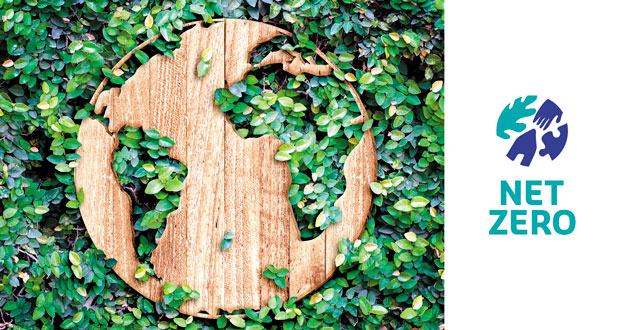Sodexo has become one of a small number of businesses to have its near and long-term science-based emissions reduction targets validated by the Science Based Targets initiative (SBTi).
As the business prioritises decarbonisation to reach net-zero emissions and reduce its impact on climate change, it has announced that the SBTi has validated its net-zero science-based target by 2045 and long-term science-based target to reduce greenhouse gas (GHG) emissions by 90 per cent across all scopes 1, 2 and 3 by 2045. This long-term science-based target, set against a baseline of 2017, incorporates emissions created throughout Sodexo’s value chain, including its supply chain and client sites, and not just those produced by its direct operations (often known as scope 1 and 2).
Sodexo has understood its carbon impacts and followed the science since 2010; this maturity enabled Sodexo to be chosen to road test the SBTi’s target validation criteria and guidance for its new net-zero standard. The road test was set up to ensure the criteria, guidance, and net-zero target setting tools which SBTi provides to companies are robust, clear, and practical.
Sodexo announced its comprehensive roadmap to net-zero and decarbonisation of its UK & Ireland business in October 2021. At that time, the SBTi had already validated its near-term science-based target of reducing GHG emissions by 55 per cent by 2030, which Sodexo says it is “on track to meet”, having already achieved a -38.5 per cent reduction in FY21. Sodexo has followed the SBTi framework to ensure the net-zero targets and commitments are authentic, transparent and credible.
Sodexo adds it will reach net-zero emissions once it achieves its long-term science-based target, prioritising decarbonisation with any remaining emissions being permanently neutralised. As part of Sodexo’s Social Value strategy, the organisation recognises the impact it has on the planet.
The validation of a net-zero science-based target by the SBTi provides a defined, long-term pathway to reduce GHG emissions, consistent with limiting global temperature rise to 1.5°C. The target covers all scope 1, 2 and 3 GHG emissions across the value chain of a company, including those produced by their own processes (scope 1), purchased electricity (scope 2), and generated by suppliers upstream and end-users downstream (scope 3).
In the last six months, Sodexo has made considerable progress with its net-zero targets by achieving the following:
- Deploying a carbon trajectory tool to identify measurable steps to achieve its near and long-term science-based targets
- Progressing its 2022 commitment to procure 100% renewable electricity
- Conducting detailed energy efficiency audits across 98% of its direct operations
- Deploying Sodexo’s food waste prevention programme, WasteWatch, to more Sodexo client sites. The programme now covers 46% of raw material spent within its UK&I business
- Launching a 100% electric vehicle and hybrid company car policy in the UK
- Increasing plant-based menu options across its food service and catering operations
- Engaging key supply chain partners on net-zero and conducting a survey to understand its GHG emission reduction targets and commitments
Claire Atkins-Morris, Director of Corporate Responsibility, Sodexo UK & Ireland said: “Not all net-zero commitments are created equal. We are incredibly proud to be one of such a small number of organisations to have our targets validated by the SBTi’s rigorous process. We recognise that the only way to keep 1.5°C in sight is one that prioritises emissions reductions, both in the near and long-term.
“SBTi’s careful and high-quality analysis of our emissions goals will support us in delivering Sodexo’s ambitious net-zero commitments.”
The SBTi is an organisation that enables businesses to set ambitious emissions reductions targets in line with the latest climate science. It is focused on accelerating companies worldwide to halve emissions before 2030 and achieve net zero emissions before 2050.
This webinar will look at how outsourcing is a cost-effective and highly relevant strategy to not only counter the race for talent, but to build greater agility, expertise, infrastructure and resource into business. In particular it will acknowledge the operational challenges facing FMs as the UK starts its return to the workplace.
To register for the webinar click here.





